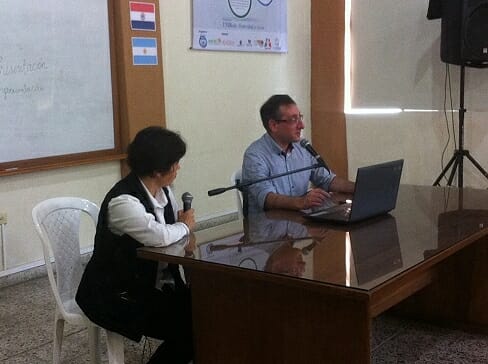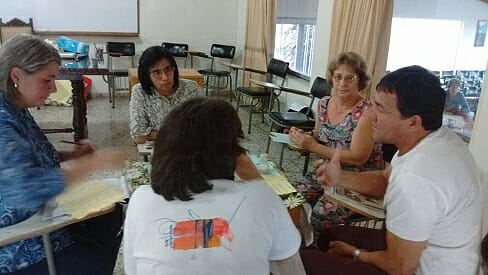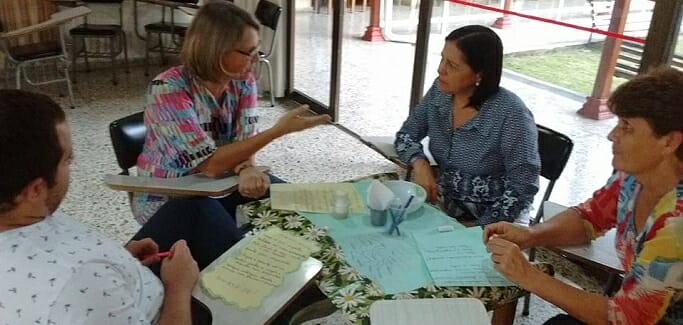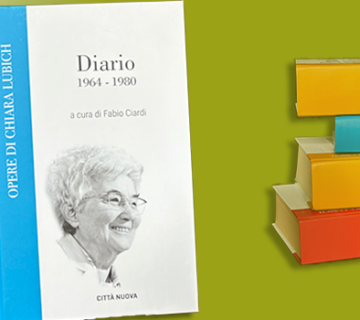 In 2013 the Colombian city of Medellín, with its 2.4 million inhabitants, was recognised as the city that achieved the most rapid modernisation process in the world, also due to the developments undertaken over the last years, like for example, the drop in carbon dioxide emissions, creation of cultural areas, and reduced criminality. The Mundo Mejor Foundation operates in Medellin and due to this was chosen as the seat of the 3rd UNIRedes Seminar, that was held from 3 – 7 June. There were representatives of over 30 organisations from Brazil, Mexico, Argentina, Bolivia, Paraguay, Venezuela and Colombia, with the addition of other 10 countries that participated via streaming.
In 2013 the Colombian city of Medellín, with its 2.4 million inhabitants, was recognised as the city that achieved the most rapid modernisation process in the world, also due to the developments undertaken over the last years, like for example, the drop in carbon dioxide emissions, creation of cultural areas, and reduced criminality. The Mundo Mejor Foundation operates in Medellin and due to this was chosen as the seat of the 3rd UNIRedes Seminar, that was held from 3 – 7 June. There were representatives of over 30 organisations from Brazil, Mexico, Argentina, Bolivia, Paraguay, Venezuela and Colombia, with the addition of other 10 countries that participated via streaming.
During this seminar the various social organisations inspired by the spirituality of unity accepted the challenge to strengthen their joint efforts. Anabel Abascal, member of the Coordinating Committee affirmed: “As social associations members of the UNIRedes believe that, in society today, working within a network is the only way in which we can call attention to universal fraternity which is our source of inspiration.”
The discussions of the four-day meeting revolved around the tools available to be able to best respond, with daily work, to the great social challenges. Susana Nuín, of the Episcopal Conference of Latin America (CELAM) illustrated the Regional Church’s viewpoint, by presenting the 4-crossroads for social intervention: care of nature, building of peace, migration and social justice.
An Italian Professor, Giuseppe Milan, expounded on intercultural pedagogy based on the spirituality of Chiara Lubich – a pedagogy that recognises and takes upon itself the sufferings and needs present in social diversity. Milan affirmed: “The principle of education is fraternity, education of universal-men who centre on dialogue to build new societies. The methodology is the art of loving. Accepting all and respecting the different cultures.”
The other themes undertaken were related to the institutional consolidation of the organisations and network management. To this end, Francesco Tortorella of AMU (Action for a United World), explained how the projects are designed, starting from the funding phase up to direct participation of the protagonists.
 To conclude, the working groups formed a new Coordinating Committee and the various working commissions that will have to pursue the various UNIRedes objectives: develop new communication strategies to intensify communion and diffusion of the various actions, giving visibility to the hope of diffusing the small, but important changes our actions generate in the lives of people; achieve a greater impact in the local public policies; weave new bonds of cooperation between organisations; work in such a way so as to give the beneficiaries of the project an active, leading role; incentivise reciprocity; promote social volunteer work as a strategy to improve the management of organizations and form a new humanity.
To conclude, the working groups formed a new Coordinating Committee and the various working commissions that will have to pursue the various UNIRedes objectives: develop new communication strategies to intensify communion and diffusion of the various actions, giving visibility to the hope of diffusing the small, but important changes our actions generate in the lives of people; achieve a greater impact in the local public policies; weave new bonds of cooperation between organisations; work in such a way so as to give the beneficiaries of the project an active, leading role; incentivise reciprocity; promote social volunteer work as a strategy to improve the management of organizations and form a new humanity.
The various discourses of the 3rd Seminar can be view via streaming and in the web page Sumá Fraternidad.


 Italiano
Italiano Español
Español Français
Français Português
Português




No comment